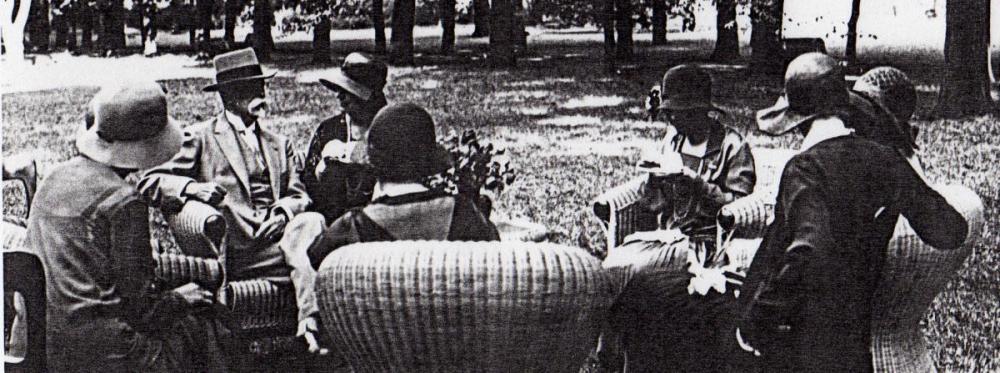Max-Planck-Institut für Wissenschaftsgeschichte
Boltzmannstraße 22
14195 Berlin
E-mail: coertzen@mpiwg-berlin.mpg.de

IFUW council members converse with Thomas Mazaryk, President of Czecholosvakia, Prague, 1930.
The International Federation of University of Women (IFUW) belonged to a network of NGOs operating in the shadow of the League of Nations. Like the League itself, the IFUW sought to overcome the divisions sewn by four long years of global conflict to achieve a genuinely transnational civil society. To this end, the IFUW promoted international educational diplomacy. Advocating a message of international good will, IFUW members demanded an end to various national restrictions on women’s access to higher education and professions.
The International Federation gathered each year between 1920 and 1939. During these nineteen meetings virtually every national member organization was granted the opportunity to host a gathering and to garner media attention for the IFUW’s mission. Of the eight largest gatherings, two took place in Britain (London, 1920, Edinburgh, 1932), one in France (Paris, 1922), one in Norway (Oslo, 1924), one in the Netherlands (Amsterdam, 1926), one in Spain (Madrid, 1928), and one in Poland (Krakow, 1926). The last gathering was held in the Swedish capital of Stockholm in 1939.
Depending on the year in question, between 250 and 500 delegates attended the gatherings. Women scholars came from across Europe, North America, and parts of the world then under the administration of the British crown. These annual gatherings represented a unique opportunity for women to meet and exchange views on the most important issues facing university women in their professions and society at large. Many attendees stayed on weeks after the official proceedings, attending tours organized by the host countries and deepening personal contacts forged in formal sessions. Not infrequently personal invitations to conduct research followed on the heels of these formal meetings.
The IFUW worked especially closely with the League of Nations’ Commission on Intellectual Cooperation. A special focus of this work was efforts to promote international exchange among women professors, research librarians, and lecturers. Under the direction of Paris-based historian Marie Monod, the IFUW published an eight hundred-page synopsis of academic terminology employed in different disciplines in Europe and North America. Monod’s publication also analyzed differences in higher educational systems and their respective degree programs. With the onset of the Great Depression, the IFUW countered demands put forward in various countries that women should yield university positions and other skilled professions to men.